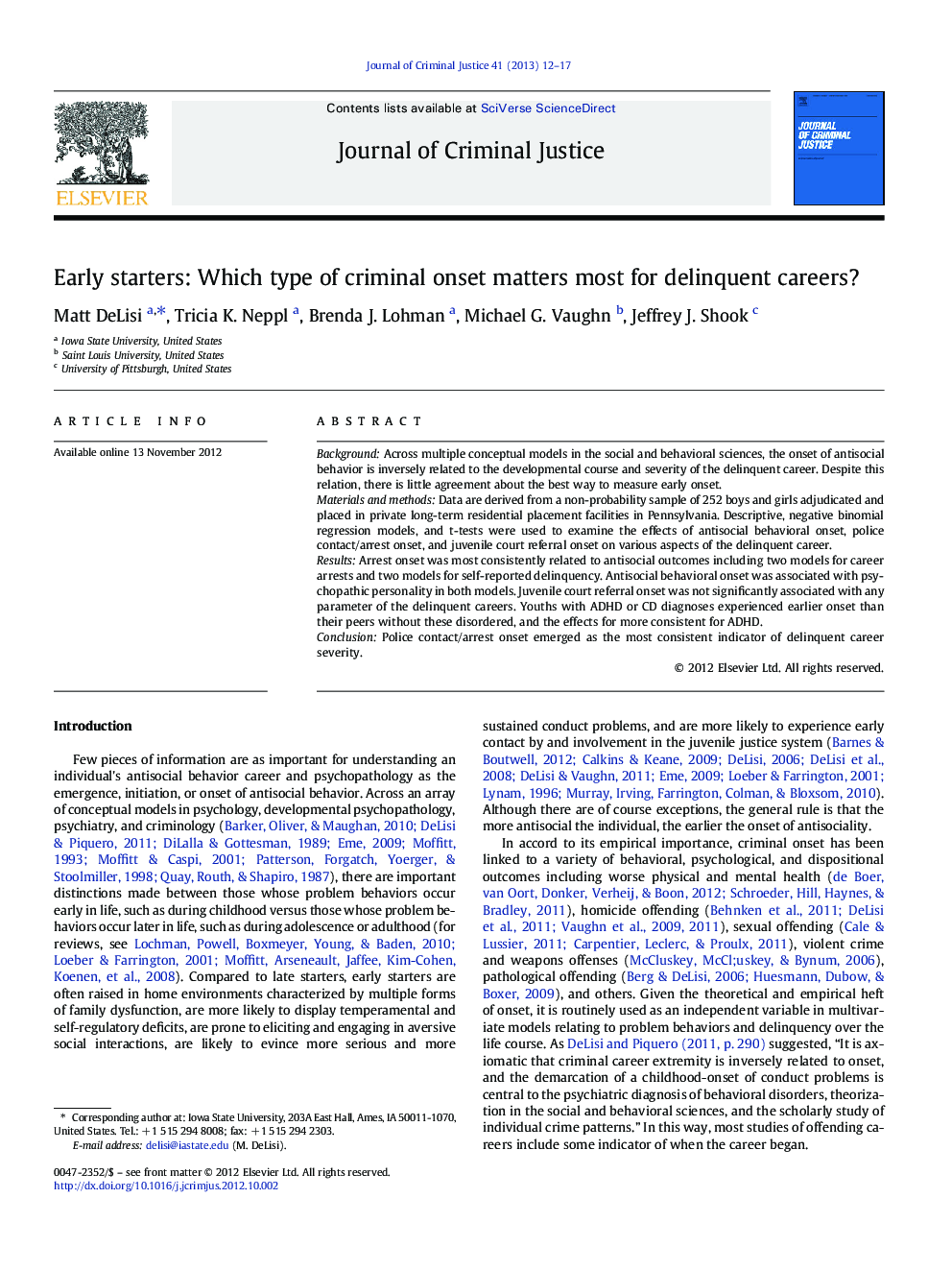| کد مقاله | کد نشریه | سال انتشار | مقاله انگلیسی | نسخه تمام متن |
|---|---|---|---|---|
| 882754 | 912019 | 2013 | 6 صفحه PDF | دانلود رایگان |

BackgroundAcross multiple conceptual models in the social and behavioral sciences, the onset of antisocial behavior is inversely related to the developmental course and severity of the delinquent career. Despite this relation, there is little agreement about the best way to measure early onset.Materials and methodsData are derived from a non-probability sample of 252 boys and girls adjudicated and placed in private long-term residential placement facilities in Pennsylvania. Descriptive, negative binomial regression models, and t-tests were used to examine the effects of antisocial behavioral onset, police contact/arrest onset, and juvenile court referral onset on various aspects of the delinquent career.ResultsArrest onset was most consistently related to antisocial outcomes including two models for career arrests and two models for self-reported delinquency. Antisocial behavioral onset was associated with psychopathic personality in both models. Juvenile court referral onset was not significantly associated with any parameter of the delinquent careers. Youths with ADHD or CD diagnoses experienced earlier onset than their peers without these disordered, and the effects for more consistent for ADHD.ConclusionPolice contact/arrest onset emerged as the most consistent indicator of delinquent career severity.
► Arrest onset was most consistently related to antisocial outcomes.
► Antisocial behavioral onset was associated with psychopathic personality.
► Juvenile court referral onset was not associated with delinquent careers.
► Youths with ADHD or CD diagnoses experienced earlier onset than their peers.
Journal: Journal of Criminal Justice - Volume 41, Issue 1, January–February 2013, Pages 12–17